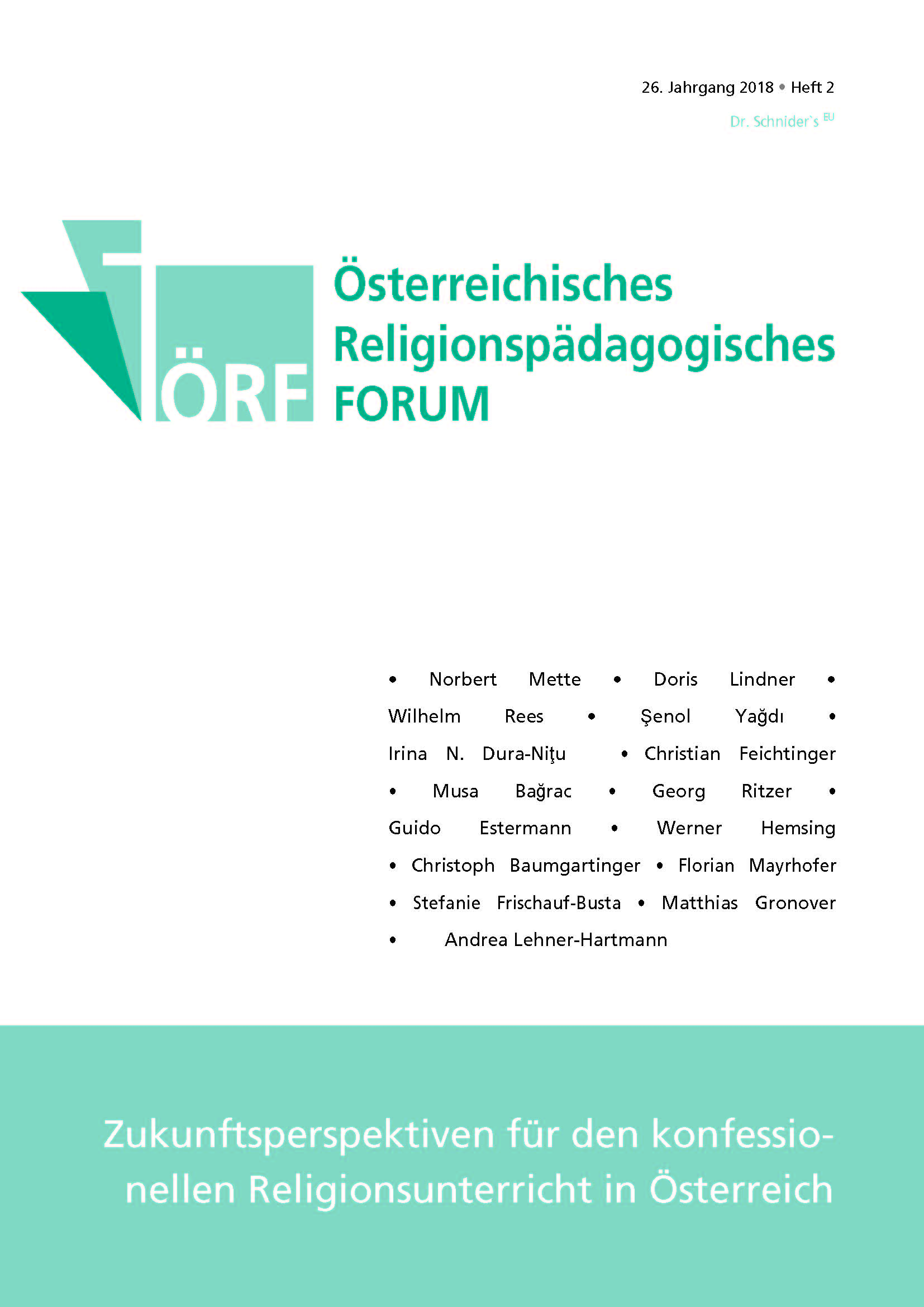Vol. 26 No. 2 (2018): Future perspectives for confessional religious education in Austria

In recent years cultural and religious diversity has increased, especially in Europe. Migration and refugee crisis have contributed significantly to this situation. This changed many things in society and in particular the access and attitude to religion. New conflicts arise between certain ideas of religion and secularity. This is also reflected in religious education. The increase or decrease of student numbers results in new realities, which are not sufficiently taken into account by the present conceptions of religious education because these have emerged in a different context. On this background the content, orientations and legal frameworks of religious education are becoming more and more important for the future. Solution must be developed in collaboration with religious communities, religious educators and school authorities.
In this context the following questions arise:
What are the challenges for religious education from the current context?
Is confessional religious education in Austria a viable model?
Which legal framework is necessary for an innovative development?
How could confessionalism be re-understood in the face of the new realities?
What future-oriented models of religious education in schools have already been developed or are being developed? How is the relationship between confessionalism and forms of cross-confessional and interreligious cooperation in religious education?
What do these challenges and questions mean for the University education of religious teachers?
